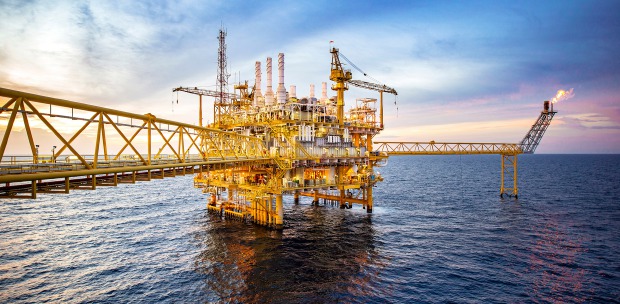KUALA LUMPUR: The spike in Covid-19 cases, which coincided with the emergence of new variants, the surging US dollar and potential increase in crude oil production could exert downward pressure on oil price as global economies grapple to reopen
Oil demand has been weighed down by lockdown enforcement globally, which was exarbated by the United States Federal Reserve's decision to reduce its stimulus measures, which has helped the US dollar regain its value, according to market observers.
The added it would be expensive to buy oil and other dollar-denominated commodities due to the greenback strengthening.
Axi chief global market strategist Stephen Innes said oil tends to bear the biggest brunt of the Covid infused risk-off environment.
"With some policymakers adopting lockdown first worry about the economic consequences later, it's not a great environment for oil markets," he told the New Straits Times (NST) when contacted yesterday.
Innes said crude prices fell precipitously overnight and continued to be pressured during US market hours due to the strengthening dollar.
"The fall began before relatively benign inventory stats were released this week as Delta is clouding the demand review.
"Until the Delta tune changes, I think oil prices remain offered as we nudge closer to the end of the US driving season and the northern hemisphere summer amid a softening of pent-up demand," he said.
Innes said the aviation continues to be the weakest component of global demand and that the risk of further restrictions on domestic and international travel as a result of the Delta variant would be a critical variable for oil prices for the rest of this year.
Additional factors such as shifting consumer preferences toward low-cost green/clean energy and international fund managers' investment preferences for companies committed to environmental, social, and governance (ESG) policies could affect oil price.
Innes said the oil prices could hover between US$65 and US$75 and stressed that Covid variants would drive volatility.
Mercury Securities Sdn Bhd said the response of major economies to the Covid-19 Delta variant would be a key factor driving the direction of oil prices in the short term.
"We expect oil prices to stay over the high US$50 level per barrel if hospitalisation rates in major economies are under control and severe movement restrictions are not imposed," it added.
Maybank Investment Bank Bhd senior chartist Nik Ihsan Raja Abdullah said there was a significant equilibrium between supply and demand globally.
"The Brent crude oil prices could be stabilised and averaging within US$65 per barrel this year," he told NST.
Nik Ihsan cautioned over extra supply as the Organisation of Petroleum Exporting Countries (OPEC)+ has an access about 5.5 million barrel per day to be laid out until April 2022.
"However, a pick up in demand as global economy recover post pandemic could catching up with excess supply.
"They can't put so much supply in the market. This could pressure the current oil prices of which now trading at decent and profitable level, the key word is gradual in order to keep price at the current range," he said.
Nik Ihsan said the downside risk could be capped for oil prices due to low inventory of oil supply, citing that demand begun to picked up from China and US in general.
Nonetheless, he said another challenges could be the ramping of US oil rigs, rising its supply from the current 461.
"But it is still below 792 oil right during the pre-Covid," he added.
At the time of writing, Brent crude futures fell 0.28 cents or 0.42 per cent to US$66.17 per barrel, after dropping 2.6 per cent on Thursday to its lowest close since May.
Bursa Malaysia's energy index rose 0.66 points or 0.09 per cent higher to 718.02 points on Friday after oil prices fell for a sixth day on Thursday, hitting lows not seen since May.
Year-to-date, the energy index peaked at the highest level at 1,017.97 on March 15 and hit the lowest at 793.14 points on January 29, 2021.
Actively traded energy stocks on Bursa Malaysia included KNM Group Bhd (KNM), Serba Dinamik Holdings Bhd, Hibiscus Petroleum Bhd and Bumi Armada Bhd.
At the closing bell yesteryda, KNM shares rose 1.5 sen or 6.98 per cent higher at 23 sen, Serba Dinamik decreased 1.0 sen or 2.41 per cent lower at 40 sen, Hibiscus shrunk 0.5 sen or 0.82 per cent lower at 61 sen, while Bumi Armada remains unchanged at 40 sen.






